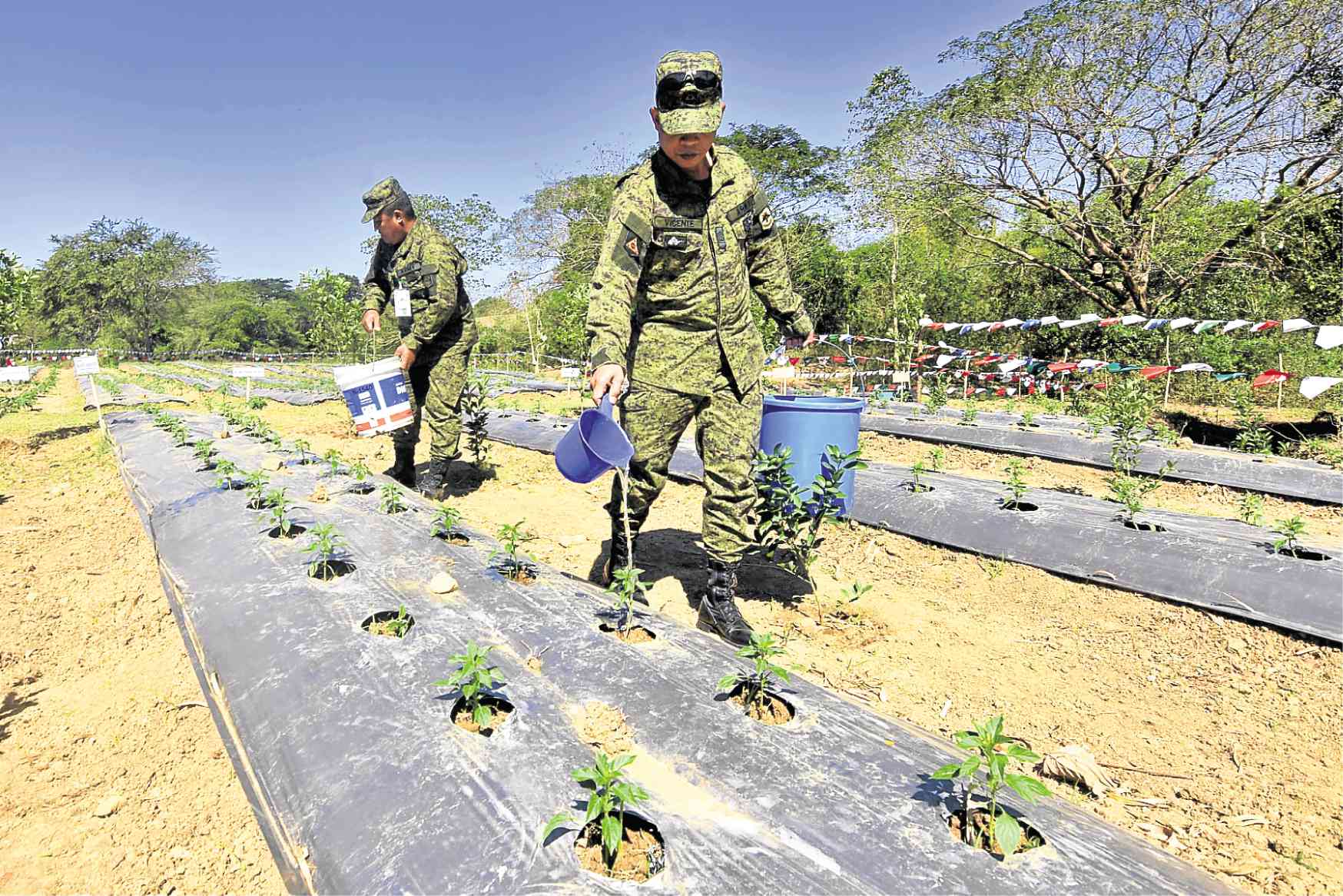In Pangasinan, soldiers grow own food through camp farming

FARM WORK Soldiers take turns in doing chores in their vegetable garden and farm at Camp Lt. Tito Abat in Manaoag, Pangasinan. —WILLIE LOMIBAO
MANAOAG, Pangasinan — If everything goes according to plan, a water-strapped military camp here will soon be self-sufficient in vegetables.
Last week, thousands of seedlings of tomatoes, eggplants, green pepper, papaya and calamansi were planted in a 1,600-square-meter area inside Camp Lt. Tito Abat here, courtesy of Tarlac Heritage Foundation (THF), East-West Seed Co. and Corvill Agricom Inc.
Some 450 seedlings of pink trumpet trees were also planted around the facility.
“We are really fortunate to be selected as one of the recipients of the ‘Hardin ng Lunas’ project by Tarlac Heritage Foundation,” said Brig. Gen. Henry Robinson, commanding general of the Army’s 702nd Infantry (Defender) Brigade. THF is founded by Dr. Isa Suntay and her mother, Isabel.
The foundation also launched a similar project at the Army’s 3rd Mechanized Infantry Battalion camp in San Jose town, Tarlac province.
Article continues after this advertisementCropping cost
Article continues after this advertisementWith the theme, “Food, Wood and Income,” the project aims to teach soldiers the latest organic farming techniques in areas with limited water supply.
Anthony Cortes, president of Corvill Agricom, who provides technical expertise to the project, said the garden could earn P400,000 to P500,000 per cropping.
“It’s only from that small area. If you expand that into a hectare, we’re talking serious money and we’re also talking serious produce for the community,” Cortes said.
“So, other than providing healthy food, the key is for the garden to be self-sufficient,” he said. As the garden becomes bigger and commercially viable, it will benefit not only the soldiers and the community but eventually, the environment, he said.
Army chief, Lt. Gen. Macairog Alberto, said he would have the project replicated in other military camps.